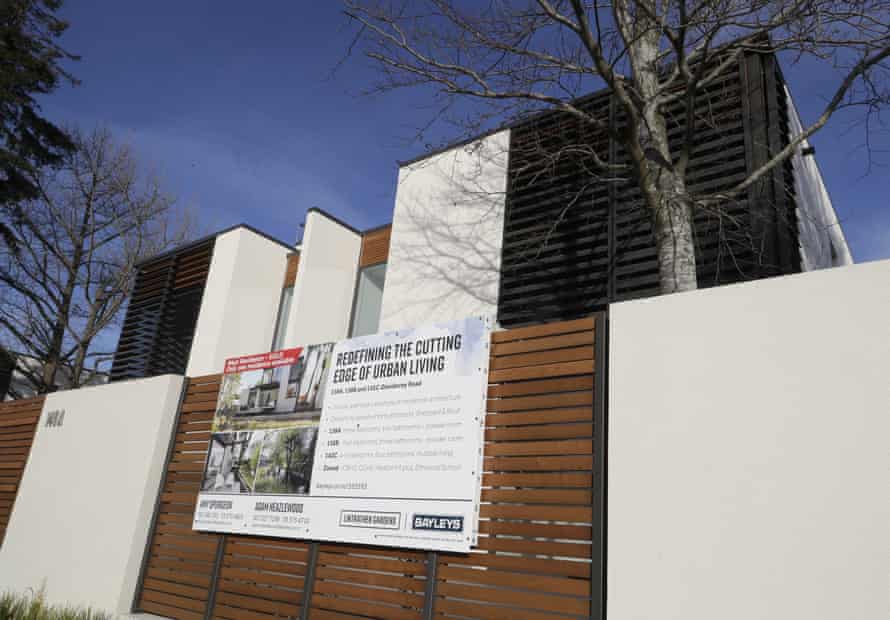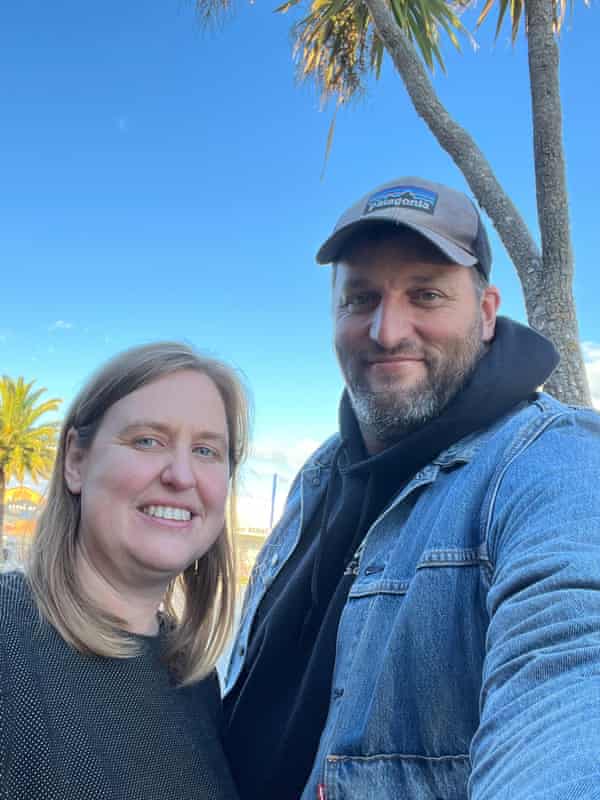Olivia* was giving up on the concept of ever proudly owning a residence. The undertaking coordinator and her companion, a instructor, had opted to attempt to purchase in Ōtautahi Christchurch, the place costs had been decrease than different essential centres, and they might be nearer to household.
“We had a 20% deposit saved, but as the market went up, that 20% got smaller and smaller,” she says. As their deposit portion shrank, the banks turned squeamish about lending to them. “Every month that went by, it became more out of reach, because of the speed that house prices were going up.”
Finally, Olivia requested for assist from her dad and mom, who determined to purchase the home on the couple’s behalf. She and her companion gave their deposit to her dad and mom, who – with an current property of their very own – rapidly bought bank approval. The couple moved in, paying all mortgage funds and prices. A 12 months later, they had been established sufficient to get bank approval for their very own mortgage and purchased the home from her dad and mom for a similar worth they’d initially paid.
“It was an absolute godsend,” Olivia says. “I’m sitting in our house today and I can’t believe it. We couldn’t afford this house now. It’s gone up astronomically.”
Over the previous 12 months, worth estimates for the property have risen so the home is now value about $200,000 greater than what they paid.
“That was the gift my parents gave me – to essentially freeze the market for us,” she says. “We’re incredibly lucky … [But] when we last spoke to the bank manager they said almost nine out 10 people now are in the same position as you: they’re either buying with parental help, or parents are buying on behalf.”
New analysis reveals the “bank of mum and dad” now ranks among the many high financiers in New Zealand, having doled out an infinite $22.6bn in monetary help. (The $22bn determine captures all excellent monetary help by dwelling dad and mom, in contrast with the banks’ whole present excellent lending.) If taken as a single block, that places the nation’s dad and mom alongside the main banks as the largest suppliers of housing finance in New Zealand.
The report, produced by nonprofit analysis and advocacy physique Consumer NZ, discovered throughout the nation, practically half of all youngsters who purchased a home, or 48%, had help from their dad and mom – with the typical contribution being $108,000. In Auckland, New Zealand’s largest metropolis, 58% of youngsters who purchased a property had household help, and the quantities they gave had been $20,000 greater than the nationwide common. Since 2018, mortgage brokers have reported that greater than 50% of first-time consumers are doing so with the help of their dad and mom, with some placing the determine as excessive as 60-70% and past. With common home costs up 30% over the course of 2021, to over $1m, that determine is now possible even larger.

The knowledge illustrates the stark realities of New Zealand’s housing market, the place excessive costs imply many youthful New Zealanders wrestle to get on the property ladder, and help from dad and mom has turn out to be the norm. It additionally raises considerations that the nation, which has lengthy prided itself on having a softer class system, is shifting to a norm the place wealth and housing is concentrated amongst a landowning class, and those that don’t profit from intergenerational wealth are left with out long-term housing or monetary safety.
“Increasingly, only the children of people who own homes will be able to also own homes,” says economist Shamubeel Eaqub. “That half of adults who owned or bought houses did so with help from their parents – that’s an extraordinary number. But it also makes sense, given how crazy our house prices are – the average house price is nearly 10 times average income – so to save a deposit for it is nearly impossible for most people.”
“We’ve reached a point in New Zealand where it’s no longer enough to do all ‘the right things’ to buy your first home – to get a job with a good income, save furiously and cut back on the ‘nice to haves’,” says Gemma Rasmussen, head of campaigns and communications at Consumer NZ. “The role of the bank of mum and dad is more pivotal in the first homebuying process, but it also means that we’re seeing a greater social divide of who gets to buy a first home and who does not.”
Carolyn Robertson, of Christchurch, says she and her husband had been capable of purchase their residence 15 years in the past by co-buying along with her dad and mom, who already owned a residence.

They say the inherent inequalities of the market turned clear to them via the method of shopping for: Paul, her husband, was raised by a single mom, whom he says would by no means have been capable of help in the identical manner. “I felt a sense of injustice,” he says. “I was super, super grateful for what Caroline’s parents did for us. But I also knew that was never an option for my mum.”
“You’ve got to have parents who are financially stable,” says Robertson. “It’s a cruel system. It ingrains inequalities.”
Those dynamics are additionally placing rising strain on the nation’s dad and mom – some of whom are downsizing and carving into retirement financial savings to help their youngsters. Consumer NZ’s analysis discovered that of the dad and mom who assisted their youngsters, 62% dipped into their financial savings, 17% reduce on their very own bills and 17% supplied their very own residence as fairness. For one in 10 dad and mom, their monetary contribution put them below reasonable to severe monetary pressure – in Auckland, it was nearly 20%.
Pauline, who works in training in Auckland*, says she and her husband opted to promote the household residence and downsize to supply their 4 youngsters with assist for their very own deposits. “I feel really strongly about inheritance – I think it’s so bloody stupid to get to the end of your life and leave money to your kids when they don’t need it,” she says. “We could see that housing prices were just going crazy. And we wanted the kids to be able to get into a house.”
Pauline says she and her husband had purchased their home within the 70s, in a once-undesirable Auckland suburb. By the mid-2000s, it was value “a ridiculous amount of money”, she says: common home costs in Auckland at the moment are over $1.2m and are 65 occasions larger than their Seventies degree.
She says amongst her friends, giving your youngsters a massive chunk of deposit is the brand new regular. “In our circle of friends, this is what’s happening,” she says. “We were lucky, and our kids are lucky, I wish that it wasn’t that way.”
Eaqub says these considerations look like turning into extra widespread in New Zealand – and are contributing to shifting political consensus that the housing market should change.
“This need to help your children means people might be working longer, or living in debt longer, or retiring with debt,” he says. “People are working now not just for their own retirement, but also to help their children buy their homes. There are all sorts of implications in that – it’s like a Ponzi scheme, right? You might be able to help your children – but then how do your children save up enough to help their children?”
“I think it’s appalling, it’s frightening,” says Pauline. “I come from a generation where [among] our parents, working-class families could buy a home,” she says. “Now we worry about our grandkids, what will happen to them.”
*Olivia and Pauline are referred to by their first names solely to guard the privateness of their households.
‘It’s like a Ponzi scheme’: New Zealand first homebuyers lean on bank of mum and dad | New Zealand & More Latest News Update
‘It’s like a Ponzi scheme’: New Zealand first homebuyers lean on bank of mum and dad | New Zealand & More Live News
All this information that I’ve made and shared for you individuals, you’ll like it very a lot and in it we maintain bringing subjects for you individuals like each time so that you just maintain getting information info like trending subjects and you It is our purpose to have the ability to get
every kind of information with out going via us in order that we are able to attain you the most recent and greatest information without spending a dime so that you could transfer forward additional by getting the knowledge of that information along with you. Later on, we are going to proceed
to present details about extra today world news update varieties of newest information via posts on our web site so that you just at all times maintain shifting ahead in that information and no matter form of info shall be there, it would positively be conveyed to you individuals.
‘It’s like a Ponzi scheme’: New Zealand first homebuyers lean on bank of mum and dad | New Zealand & More News Today
All this information that I’ve introduced as much as you or would be the most completely different and greatest information that you just individuals are not going to get anyplace, together with the knowledge Trending News, Breaking News, Health News, Science News, Sports News, Entertainment News, Technology News, Business News, World News of this information, you may get different varieties of information alongside along with your nation and metropolis. You will be capable to get info associated to, in addition to it is possible for you to to get details about what goes on round you thru us without spending a dime
so that you could make your self a educated by getting full details about your nation and state and details about information. Whatever is being given via us, I’ve tried to deliver it to you thru different web sites, which you’ll like
very a lot and should you like all this information, then positively round you. Along with the individuals of India, maintain sharing such information essential to your family members, let all of the information affect them and they will transfer ahead two steps additional.
Credit Goes To News Website – This Original Content Owner News Website . This Is Not My Content So If You Want To Read Original Content You Can Follow Below Links
